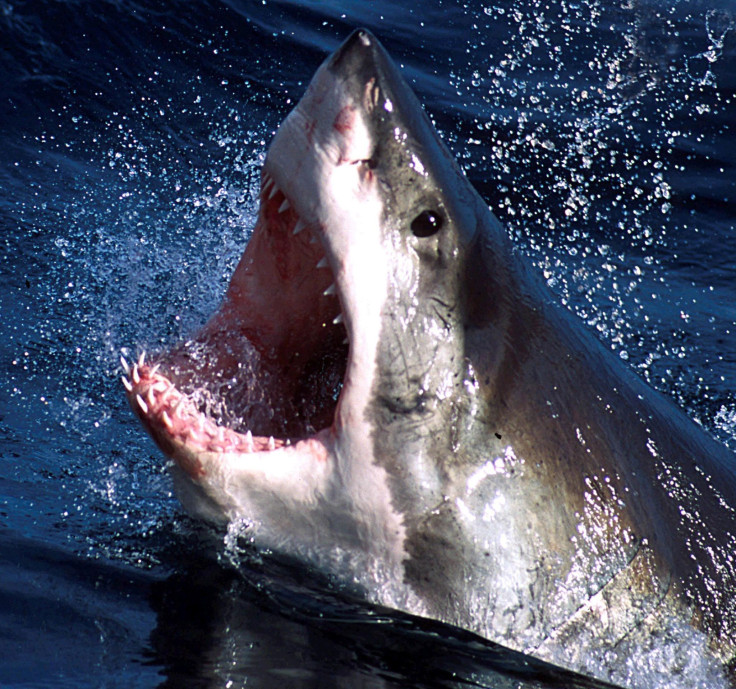Photo With Great White Shark Washed Ashore Gets Scientist Criticized

A marine biologist and his colleague was criticized Sunday on social media after a photo surfaced of a man posing with a dead great white shark that washed ashore at Beer Can Beach in Aptos. Giancarlo Thomae said while waiting for the shark to be transported to the research lab, he decided to get some pictures of the predator, and asked his colleague to pose next to it.
Thomae said the shark was 8 feet 9 inches long, weighed 500 pounds, and was 5 years old. The photo was taken Sunday and posted on the Facebook page of Salinas-based TV station KSBW.
“This was once a living being and it’s just OK to lay next to it smiling?” one person wrote. “This is appalling … justice needs to be had.”
“This could not be more messed up,” wrote another.
Thomae said in an interview he knew how tall his colleague was and asked her to lie next to the shark for scale. He defended himself by saying the photo wasn’t taken for fun, but only for the purpose of science.
“People are really opinionated especially with such a majestic creature washing up dead. As a biologist and a nature-lover, it makes me happy that people care so much about wildlife,” Thomae said. “I’m sorry if my photo offended anyone, but we just needed scale for reference.”
Thomae said he and his colleagues managed to move the shark and later loaded it onto a vehicle for transport to a necropsy, or animal autopsy. The shark was taken to the UC Santa Cruz-affiliated Joseph M. Long Marine Laboratory.
According to Thomae, the shark had several scars and more recent wounds from encounters with sea lions, but the scientist thinks he likely died from a bacterial infection
“There have been strains of bacteria that affect brain functions of sharks, and many shark deaths have been blamed on Carnobacterium infections in previous years,” said Thomae in a news release, adding the bacteria are nearly harmless to humans.
© Copyright IBTimes 2025. All rights reserved.





















